ICYMI: Experts Wonder Whether Trump Has Lost His Leverage to China to Avoid Trade War
(BISMARCK, ND) – Amid growing threats of a global trade war last week, this weekend the administration backed off tariffs against China, saying “we’re putting a trade war on hold.” After initially announcing a deal that promised $200 billion in U.S. commodity buys – which China denied and experts called actually achieving “a tricky task” – U.S. officials quickly backtracked, calling that figure as a “rough ballpark estimate.”
Now that no concrete deal is on the table, experts are questioning whether the administration’s tough talk on tariffs will actually yield results, one of those experts sayingthe U.S. will have to ask itself, “whether going through all this was worth it.” According to the New York Times, an expert at the conservative American Enterprise Institute said “the United States’ response to China’s ‘predatory behavior’ had been put on hold ‘in exchange for things yet to occur, and Mnuchin won’t tell us what they are.’”
Here’s some analysis on what isn’t included as part of trade discussions with China:
Washington Post: China is winning Trump’s trade war
- It was easy to miss the U.S.-China trade statement that the White House released Saturday, right in the midst of royal wedding mania. But it’s hard to hide that China looks as if it’s winning President Trump’s trade skirmish — so far.
- Notice China didn’t agree to a specific amount. On Friday, Trump’s top economic adviser, Larry Kudlow, was telling reporters that the Chinese had agreed to reduce the deficit by “at least” $200 billion. China quickly denied that, and, a day later, the official statement didn’t have a concrete number, a seeming victory for the Chinese.
- What about the IP fight? The real battle against the Chinese was supposed to be over intellectual property theft, which the Trump administration says has been going on for years and costs the U.S. economy $225 billion to $600 billion a year. Trump was supposed to get the Chinese to stop stealing U.S. business secrets and technology. On this front, the statement was brief and lackluster, saying that both sides agreed to “strengthen cooperation” (diplomatic speak for not doing much) and that China would “advance relevant amendments” to its patent law.
- Dan DiMicco, a former steel CEO who has been a big supporter of Trump’s steel and aluminum tariffs, tweeted shortly after the statement came out, “Not good enough. Time to take the gloves off.” He followed that up with: “Did [the] president just blink? China and friends appear to be carrying the day.” Fox Business host Lou Dobbs summed up the situation this way: “Chinese say ‘no deal.’”
- Sen. Marco Rubio (R-Fla.) tweeted, “Why do U.S. officials always fall for China trickery?” Wall Street Journal trade reporter Bob Davis tweeted that the big takeaway is: “Trump administration gets rolled by the Chinese.”
- It was always unlikely that the United States would get China to alter its marquee economic growth plan, but it’s yet another reminder that the Chinese gave a few concessions on things that aren’t sacrifices for China.
New York Times: U.S. Suspends Tariffs on China, Stoking Fears of a Loss of Leverage
- The Trump administration has suspended its plan to impose sweeping tariffs on China as it presses forward with trade talks, a gesture that will temporarily ease tensions between the two nations but rapidly increase pressure on President Trump to secure the type of tough deal that he has long said is necessary to protect American workers.
- “We’re putting the trade war on hold,” Mr. Mnuchin said on “Fox News Sunday.”
- The reprieve came as many crucial details remained undecided, and trade experts warned that the suspension of tariffs could undercut Mr. Trump’s leverage and thrust the United States back into the kind of lengthy — and ultimately fruitless — negotiations with China that have bogged down previous administrations.
- On Saturday, both countries released a joint statement that offered little detail about what had been agreed to, other than holding another round of discussions in China. Mr. Mnuchin said on Sunday that the countries had agreed on a “framework” under which China would increase its purchases of American goods,while putting in place “structural” changes to protect American technology and make it easier for American companies to compete in China.
- And while Trump administration officials said last week that China was prepared to increase its purchases of American products by $200 billion by 2020, Chinese officials had pushed back on that claim, and the joint statement the two sides released lacked any such dollar figure.
- Mr. Kudlow said on Sunday that the $200 billion number was a “rough ballpark estimate” that both sides had used.
- “It certainly looks like President Trump is failing us on China,” said Daniel DiMicco, the chairman of the trade lobbying group Coalition for a Prosperous America and a former trade adviser to Mr. Trump during his campaign. “He is letting down all those who voted for him and rewarding those who didn’t. It appears the swamp got him.”
- Some supporters of the administration’s tough stance on China now fear that the White House is pursuing a quicker deal that would reduce the trade deficit — a longtime goal of Mr. Trump’s — as well as forestall a trade war, butsacrifice more ambitious goals the administration had discussed for reforming the Chinese economy.
- Derek Scissors, resident scholar at the conservative American Enterprise Institute, said the United States’ response to China’s “predatory behavior” had been put on hold “in exchange for things yet to occur, and Mnuchin won’t tell us what they are.”

